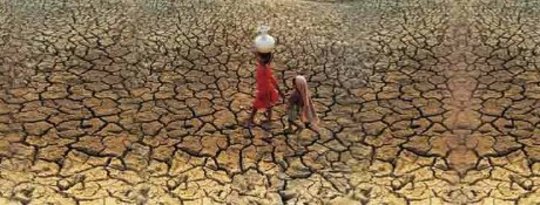- By Paul Brown

One of the great stumbling blocks of climate talks in the last 15 years has been that America refuses to move to cut emissions of greenhouse gases until China does – but at the weekend leaders of the world’s two great polluters reached agreement to phase out one of the most potent of them hydrofluorocarbons (HCFs).
- By Paul Brown
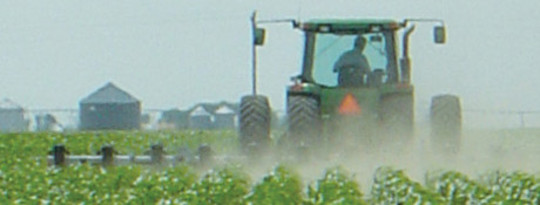
One of Africa’s most distinguished scientists insists that in a warming climate the world needs to adopt genetically modified crops on a massive scale in order to feed the planet’s growing population.
- By Paul Brown

Over 40 years cloud cover has been steadily falling in Spain providing more sunshine but that is a threat as well as a bonus.
- By Tim Radford

The good news is that some coral can recover from periodic warming of the oceans: the bad news is it might take too long.
- By Paul Brown
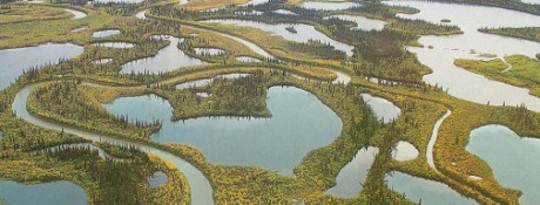
A vast area of Canada, from southern forests to the Arctic Sea is administered by a weak government, but is threatened by warming and a rush to exploit precious minerals.
- By Kieran Cooke
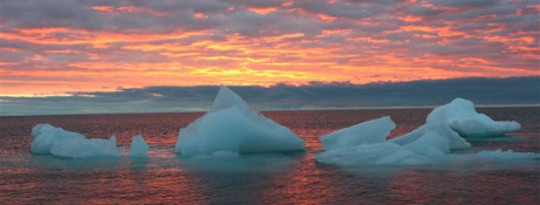
There’s strong evidence that with rising temperatures and reductions in ice cover, the Arctic is seeing a spike in the rate of various diseases.
- By Tim Radford
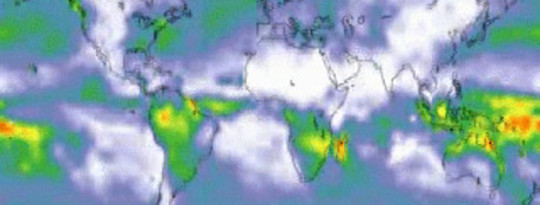
Estimating how alterations in rainfall patterns will affect tree growth in different regions is a puzzling business. Nobody knows for certain what climate change will bring but on the basis of the latest research by plant ecologists, one thing has been established: there will be surprises.
- By Paul Brown
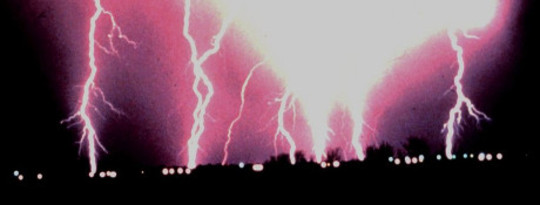
Forecasting is still difficult but it looks like the world will become a more stormy place in the years ahead. More intense thunderstorms combined with damaging winds are expected to occur because of climate change, according to speakers at the seventh European Conference on Severe Storms being held in Helsinki, Finland.
- By Tim Radford
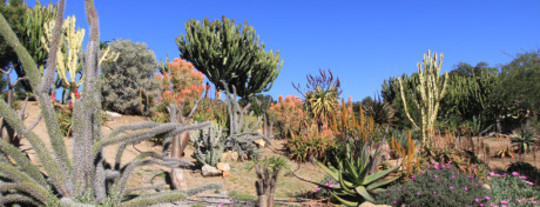
New study predicts a big jump in foliage growth in arid regions as carbon dioxide levels increase.Australian scientists have solved one piece of the climate puzzle. They have confirmed the long-debated fertilization effect.
- By Tim Radford

That jet-propelled cephalopod of the seas, the squid, could be in for a hard time. As atmospheric carbon dioxide levels rise, so the oceans become more acid, and this is not good news for one of the most important animals of the ocean ecosystem.
- By Kieran Cooke
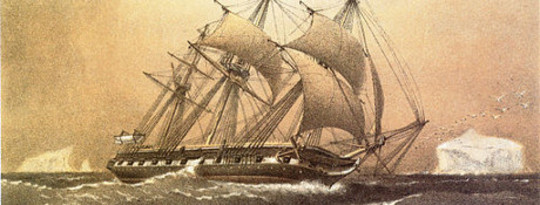
Indications the rate of warming in oceans is greater than previously thought. Now scientists are using data collected during the Challenger’s four year expedition to try to understand the heat content of the oceans.
- By Alex Kirby
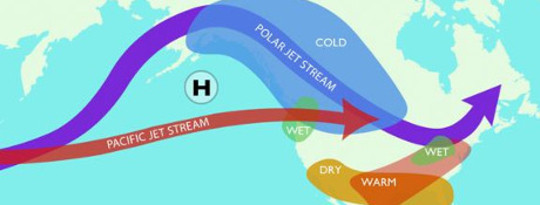
Leading climate scientist highlights the importance of regional data in understanding the effects of global climate change.
- By Alex Kirby

A flagship UN policy designed to help to save the world’s forests faces rejection by indigenous groups in Panama, who believe it is being used in an attempt to usurp their ownership.
The majority of the 9 billion people on Earth will live with severe pressure on fresh water within the space of two generations as climate change, pollution and over-use of resources take their toll, 500 scientists have warned.
- By Alex Kirby
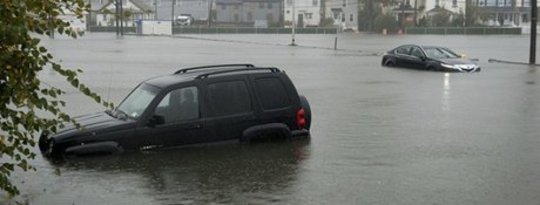
One of the factors which has prompted US scientists to warn of intensified hurricane activity in the Atlantic this year is warmer water temperatures, linking storm frequency with climate change.
- By Tim Radford

Cities are liable to heat up much more than open countryside as the climate warms – and in the case of New York City, this could mean a big increase in heat-related deaths.
- By Paul Brown
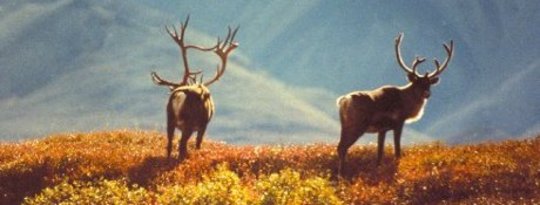
The Good News for humans is the arctic will be warmer and it will sprout forests although it will be bad news for many other animal species. The Bad News? Southern areas will also be warmer and be deforested. Perhaps you can move to Russia or Canada, eh.
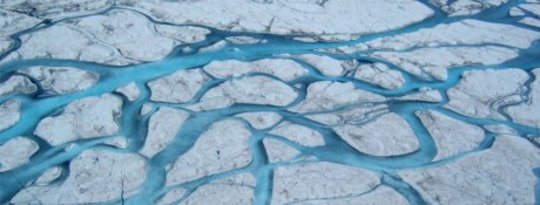
When 97 percent of Greenland’s ice experienced at least some melting in July 2012, scientists wondered if it was a one-time phenomenon. Now a new study in Geophysical Research Letters indicates it is a sign of things to come and by 2025, there is a 50-50 chance of it happening annually.
- By Paul Brown
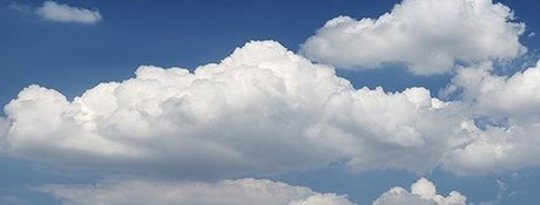
The ability of clouds to reflect sunlight back into space and so help to cool the Earth appears to have been over-estimated, researchers say, in a study especially significant for major polluters.
- By Alex Kirby
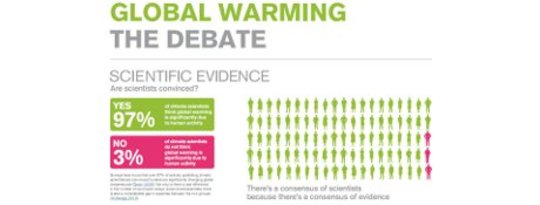
A study of thousands of peer-reviewed scientific articles on climate change has found almost unanimous agreement among the authors that most of the recent warming has resulted from human activities.
- By Tim Radford
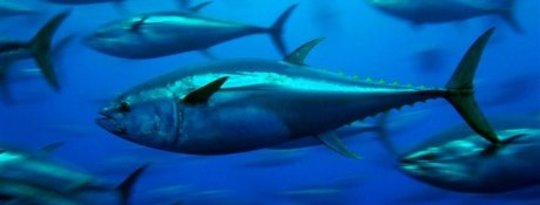
Scientists have wrestled for years with the problem of detecting evidence of climate change in the oceans. Now a Canadian team has found a way to do so: by working out what temperatures suit different fish species.
- By Kieran Cooke
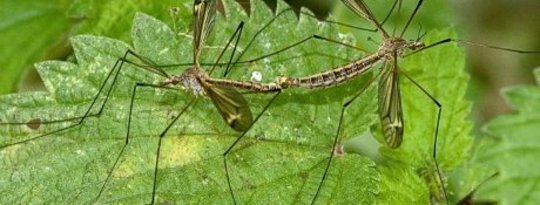
Agricultural scientists are linking several pests and diseases affecting British farming with climate change, posing problems for both livestock and crops.
- By Amy Goodman

As the carbon dioxide in the air hits 400 parts per million for the first time in human history, some are arguing that the best way address climate change is to use the controversial practice of geoengineering — the deliberate altering of the Earth’s ecological and climate systems to counter the effects of global warming.

